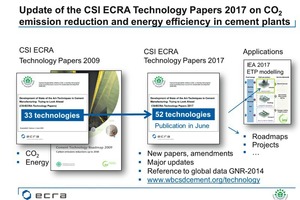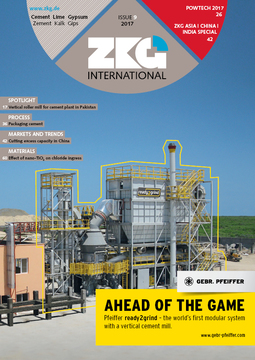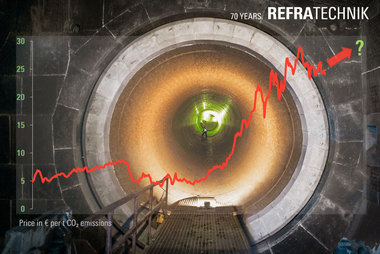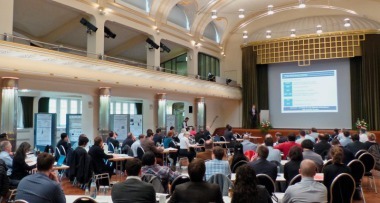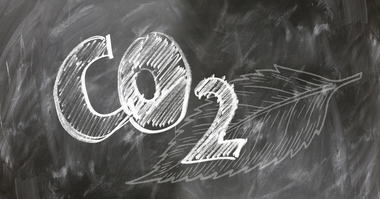Technology Papers 2017 on available technologies for CO2 abatement
The Cement Sustainability Initiative (CSI) and the European Cement Research Academy (ECRA) have released their new “CSI/ECRA Technology Papers 2017” to update the perspective of available technologies for CO2 abatement and energy efficiency in the cement sector. The publication analyses existing and future technologies with the potential to increase energy efficiency and decrease CO2 emissions in cement production, and also analyses their costs in typical future cement plants, conditions and expected development.
The new report is available from CSI at //www.wbcsdcement.org/technology" target="_blank" >www.wbcsdcement.org/technology:www.wbcsdcement.org/technology. It comprises 52 individual technology papers and also seven papers summarising the state-of-the-art and anticipated development in the following technological fields: Thermal energy efficiency, electric energy efficiency, use of alternative fuels, materials and biomass, reduction of the clinker content in cement, new binding materials, CO2 capture and storage (CCS), and CO2 use (CCU). Estimations on technology application in the cement industry are provided for the future years 2030 and 2050. The information is based on today’s technical knowledge, assumptions on its further development, new research literature, internet data, discussions with stakeholders and the expert knowledge available at the European Cement Research Academy.
Furthermore, the technology papers 2017 were intended to incorporate information on alternative material and fuel use in the cement industry and to form a new basis for the Energy Technology Perspective (ETP) modelling project of the International Energy Agency (IEA).
The CSI/ECRA Technology Papers 2017 comprise innovative technologies and updates of their former versions from 2009. They were successfully reviewed by the CSI project group and by international stakeholders, in particular experts from cement companies, researchers and international organisations.
The Cement Sustainability Initiative (CSI) is a global effort by 23 major cement producers with operations in more than 100 countries who believe there is a strong business case for the pursuit of sustainable development. Collectively these companies account for around 30 % of the world’s cement production and range in size from very large multinationals to smaller local producers.
The European Cement Research Academy (ECRA) was founded in 2003 as a platform on which the European cement industry supports, organises and under-takes research activities within the context of the production of cement and its application in concrete. By creating and disseminating knowledge from research findings, ECRA’s aim is to facilitate and accelerate innovation to guide the cement industry.
//www.ecra-online.org" target="_blank" >www.ecra-online.org:www.ecra-online.org
//www.wbcsdcement.org" target="_blank" >www.wbcsdcement.org:www.wbcsdcement.org

